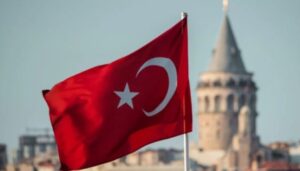
According to Serbian Economist, a number of Balkan media outlets reported that Turkey has become the largest foreign investor in Montenegro since 2020, with total investments estimated at over €417 million.
At the same time, official statistics show a more “volatile” picture over the years, with Serbia appearing as one of the key sources of capital. Thus, in an analytical review by the Parliamentary Budget Office of Montenegro, based on data on foreign direct investment (FDI) inflows for 2024, Serbia is named as the largest source with €118.2 million, followed by Russia with €109.7 million and Germany with €88.7 million. Turkey was in fourth place in 2024 with €39.5 million (the US with €37.2 million).
In 2025 (January-August), the ranking changed: Turkey took first place with €92.2 million, Serbia took second place with €91.8 million; followed by Russia (€45.3 million), Germany (€41.7 million), and the UAE (€34.7 million).
The key reason for these “swings” is the structure of investments. In 2024, the total gross inflow of SDI amounted to about €891.1 million, of which the largest part was accounted for by real estate transactions (purchase of properties) – €455.3 million, followed by intercompany debt (€292.1 million) and investments in companies and banks (€113.9 million). In other words, the ranking of investor countries largely depends on cycles in the real estate market and large one-off deals.
It is worth distinguishing between the “cumulative total since 2020” and the “leaders of a particular year.” Publications about Turkey’s leadership are based on the aggregation of several years and emphasize the acceleration of Turkey’s presence in the last 1-2 years. In particular, reports citing the Turkish-Montenegrin Chamber of Commerce estimate that investments from Turkey in 2024 amounted to approximately €100.9 million, and in 2025 (for 10 months) – approximately €110.8 million.
Serbia, in turn, remains a “structural” investor for Montenegro: in SDI statistics, it regularly ranks among the leaders, and in 2024 it took first place. In practical terms, this reflects the close connection between the two economies — from business and banking and service cooperation to active demand for real estate and tourism, which is why the Serbian share reacts significantly to the housing market situation and seasonality.
Overall, Montenegro’s SDI profile for 2020-2025 remains “real estate-tourism,” which means that the composition of leaders by country may change more rapidly than in economies dominated by long-term industrial projects.

Housing sales in Turkey in December 2025 increased by 19.8% compared to December 2024, reaching 254,777 transactions, according to data from the Turkish Statistical Institute (TurkStat) reported by Turkish media.
At the end of 2025, the Turkish housing market showed growth of 14.3% to a record 1.69 million transactions; at the same time, mortgage sales for the year increased by 49.3% to 236,668.
Sales to foreigners in 2025 decreased by 9.4% to 21,534 properties (1.3% of all transactions). In December, foreigners purchased 2,541 properties, with Istanbul, Antalya, and Mersin leading the provinces at the end of the year.
As previously reported by the Open4Business portal, Ukrainians ranked third in terms of home purchases in Turkey. Overall, at the end of 2025, sales of housing to foreigners in Turkey decreased by 9.4% to 21,534 properties. Among foreign buyers, citizens of the Russian Federation led the way for the year (3,649 properties), followed by Iran (1,878) and Ukraine (1,541).

In December 2025, Ukrainian citizens ranked third among foreigners in terms of home purchases in Turkey, according to data from the Turkish Statistical Institute (TurkStat) cited by Turkish media.
According to the published data, foreigners purchased 2,541 properties in Turkey in December, which is 5.1% more than in December 2024. Russian citizens ranked first in terms of purchases in December (504 properties), followed by Iran (232) and Ukraine (193).
Overall, in 2025, sales of housing to foreigners in Turkey fell by 9.4% to 21,534 properties. Among foreign buyers for the year, Russian citizens led the way (3,649 properties), followed by Iran (1,878) and Ukraine (1,541).
Overall, home sales in Turkey in December 2025 increased by almost 20%.

The number of foreigners with valid residence permits in Turkey as of December 31, 2025, was 1,151,969, according to statistics from the Presidency of Migration Management of the Turkish Ministry of Interior.
Compared to the end of 2024, the figure increased by 95,337, or approximately 9%.
The structure of residence permits by type in 2025 includes 426,926 short-term permits, 220,434 student permits, 168,455 family permits, and 336,154 permits of other categories.
According to data on distribution by province, more than half of all foreigners with residence permits live in Istanbul – 579,932. Next are Antalya (109,571) and Ankara (73,263).
In terms of citizenship, Ukraine is in the top 10 for short-term residence permits (21,257) and in the top 10 for family residence permits (6,505).
The Migration Directorate reminds that foreigners planning to stay in the country longer than the visa or visa-free regime period, i.e., more than 90 days, must apply for the appropriate residence permit through the electronic system, and reference information can be obtained through the YIMER center (157 within Turkey).

Ukrainians are not among the ten largest groups of foreigners with valid residence permits (RP) in Turkey as of December 25, 2025, according to the latest statistics from the country’s migration service.
According to the agency’s data, as of that date, there were a total of 1,137,023 foreigners residing in Turkey on the basis of a residence permit.
Citizens of Turkmenistan (166,292) and Azerbaijan (90,942) lead the way, followed by citizens of Syria (77,709) and Iran (73,534). Russians rank fifth in this rating (72,548 thousand), which means they have lost their leading position amid the growth of other countries’ share.
In terms of types of residence permits, the migration service indicates that as of December 25, 2025, short-term residence permits amounted to 419,759 thousand, student permits – 216,564 thousand, family permits – 166,539 thousand, and other categories – 333,969 thousand.
The primary source of this data is the current statistics section of the Turkish Migration Service (Göç İdaresi Başkanlığı) with an update date of 12/25/2025.